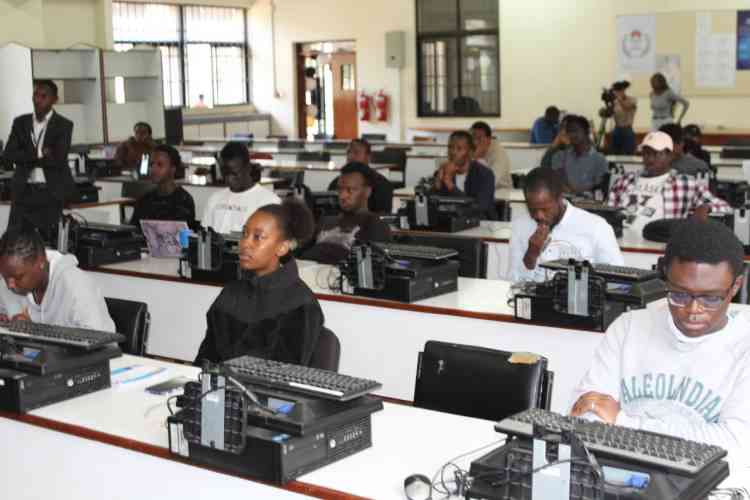×
The Standard e-Paper
Fearless, Trusted News

Participants during AI and cyber security seminar at the University of Nairobi, Chiromo Campus. [Rodgers Eshitemi,Standard]
Africa Cyber Security and the AI Foundation (ACAIF) is targeting to train 1,000 entrepreneurs across Africa, including 200 from Kenya, in the cyber challenge as they aim to increase the uptake of Artificial Intelligence (AI) in small, medium, and large business enterprises.